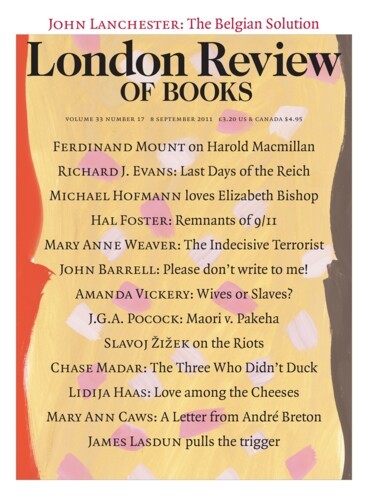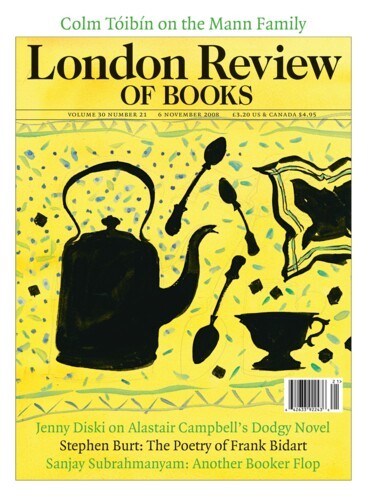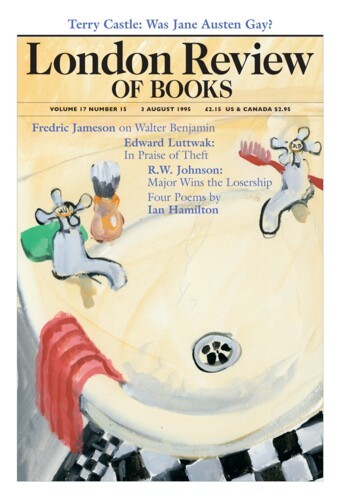J.G.A. Pocock
J.G.A. Pocock, who died in 2023 at the age of 99, taught for many years at Johns Hopkins. He was the author of The Ancient Constitution and the Feudal Law, The Machiavellian Moment: Florentine Political Thought and the Atlantic Republican Tradition, the six volumes of Barbarism and Religion, concerning Edward Gibbon’s Decline and Fall of the Roman Empire, and many other books about the history of political thought and about history as a kind of political thought. He wrote for the LRB on subjects including Edward Gibbon, Edmund Burke and Aotearoa New Zealand, where he grew up.
‘Kawanatanga’
6 November 2008
Sister-Sister
3 August 1995
Pieces about J.G.A. Pocock in the LRB
Europe, what Europe? J.G.A. Pocock
Colin Kidd, 6 November 2008
Few areas of the humanities have undergone such a remarkable transformation over the past half-century as the history of political thought. Students were once introduced to it by way of its...
Writing the History of Middle Earth: Edward Gibbon
Colin Kidd, 6 July 2000
Tall, silver-haired and bearded, with a mesmerising voice and beguiling manner of delivery, John Pocock has long struck me as the Gandalf of the historical profession. The range, altitude and...
No Trousers
Claude Rawson, 20 December 1990
Burke’s Reflections on the Revolution in France was published on 1 November 1790. By then, Burke had long ceased to be the dominant intellectual influence in the Whig Party. He hoped the...
Tory History
Alan Ryan, 23 January 1986
Demolish a much-loved building, and you are left with rubble. Demolish a much-loved piece of political theory, and you find it rising from its own ashes, somewhat changed in appearance, but...
Writing to rule
Claude Rawson, 18 September 1980
Was there such a thing as ‘Neo-Classicism’, outside the special sense of the term which art historians apply to a later period than the one over which students of literature lose so...
Read anywhere with the London Review of Books app, available now from the App Store for Apple devices, Google Play for Android devices and Amazon for your Kindle Fire.
Sign up to our newsletter
For highlights from the latest issue, our archive and the blog, as well as news, events and exclusive promotions.



